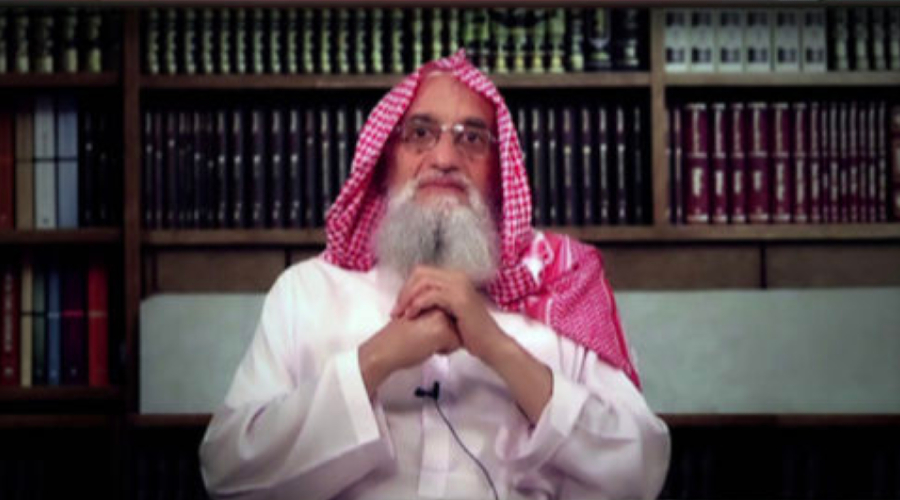Canada's Policy to Confront the Islamic State
Editor's Note: Canada is a close American ally, and in both war and peace, the two countries seem bound at the hip. Canada, however, has its own distinct politics, interests, and capabilities, and these are all evident in its debate over the war against the Islamic State. Thomas Juneau of the University of Ottawa dissects Canada's politics and policies towards the Islamic State, arguing that Canada should remain an important part of the U.S. effort to degrade and defeat it.
***
Published by The Lawfare Institute
in Cooperation With

Editor's Note: Canada is a close American ally, and in both war and peace, the two countries seem bound at the hip. Canada, however, has its own distinct politics, interests, and capabilities, and these are all evident in its debate over the war against the Islamic State. Thomas Juneau of the University of Ottawa dissects Canada's politics and policies towards the Islamic State, arguing that Canada should remain an important part of the U.S. effort to degrade and defeat it.
***
Canada is not a major power: its actions on the international stage have, at most, a marginal impact. But, paradoxically, Ottawa often benefits from a wide margin of maneuver: it can choose from a range of options since, unlike the United States or regional powers dealing with issues among their neighbors, Canada is unlikely to directly suffer from the negative consequences of poor choices.
Indeed, Canadian foreign policy is in the comfortable position of being able to muddle along without necessarily having to carefully assess the pros and cons of plausible courses of action. Because Canada has very limited direct stakes in most developments outside of North America, and because very few international conflicts threaten it directly, foreign policy debates in the country tend to be shallow. To simplify, many on the center-left promote an idealized, but implausible vision harking back to an alleged Golden Age when the country – the founding nation of UN peacekeeping according to this view – was respected as an honest broker and a moral superpower. On the center-right, there has been a tendency, especially in recent years, to coat foreign policy in highly moralistic rhetoric, claiming to align the country with Good and opposing Evil, but to largely fail to act on this basis. In reality, however, the substance of Canadian foreign policy does not budge much from the mushy middle ground: Conservative and Liberal governments succeed each other, but most of their actions on the international stage are broadly similar. The rhetoric emanating from Ottawa often changes when a new government comes in, but the substance of policy barely does. Canada’s approach to the Israeli-Palestinian conflict is illustrative: remove the assertive pro-Israel rhetoric of the Conservatives in recent years, and in practice there is little to distinguish their policy form that of the Liberals, either prior to 2006 or since their return to power last fall.
The current debate on what Canada should do to confront the Islamic State (IS, often referred to as ISIS or ISIL) is typical. The previous Conservative government – in power from 2006 until its defeat last October – committed Canada to participate in the U.S.-led coalition against IS. Canada has deployed six CF-18 fighter aircraft since September 2014 to contribute to the campaign, in addition to surveillance and air-to-air refuelling aircraft and 70 special forces training Kurdish Peshmerga units in northern Iraq. On October 19, 2015, the center-left Liberals, under Prime Minister Justin Trudeau, defeated the Conservatives and promised to suspend Canada’s participation in the coalition airstrikes, claiming they would refocus efforts “where Canada can make a difference:” training and humanitarian assistance. Though the new government has yet to announce its policy, Canada will likely maintain the deployment of surveillance and air-to-air refuelling aircraft and continue, and possibly intensify, its training efforts.
Unsurprisingly, there was little debate during the campaign, or since, on Canada’s interests beyond the usual ideological – and heavily idealized - positions. What level of threat does IS pose to Canada? What are the consequences of IS threatening some of our partners in the Middle East? What would a cost-benefit analysis of the various options look like?
Canada’s most vital interests – its security and prosperity – are not threatened by IS. Unlike Iraq and Syria’s neighbors, Canada does not share a border with IS-controlled areas. Spillover in the form of massive refugee flows, border violence, and large-scale infiltration by violent elements are not direct concerns. Canada should not, in other words, overstate the threat.
Canada’s most vital interests – its security and prosperity – are not threatened by IS.
That said, Canada has a number of important, though far from vital, interests affected by IS. The first of these interests deals with homeland security: to protect against the possibility that Canadians, having gained terrorist skills in Iraq or Syria, could return home and launch attacks, or that lone actors inspired by IS could launch attacks on Canadian soil. This is plausible: Canadian security agencies estimate that several dozen Canadians are fighting, or have fought, with IS. Like many other Western countries, Canada has already been the target of IS-inspired attacks: in October 2014, two separate incidents led to the death of two Canadians. Though the threat of IS to Canada, through the twin phenomena of foreign fighters and inspired lone actors, is real, it is modest compared to Western European countries that have seen hundreds or foreign fighters and lone actors.
Second is Canada’s interest in alliance management: it is essential for Canada to be — and be perceived as — a reliable ally. Canada views international developments largely through the prism of its key bilateral and multilateral relationships, especially the United States and, to a much lesser extent, NATO. If the United States calls for support from its allies, Canada must seriously consider obliging, since failing to do so could lead to U.S. reprisals, most likely under the form of more or less subtle hindrances to bilateral trade – or so the dominant perception goes. In parallel, U.S. homeland security is also indirectly a Canadian interest: few scenarios are more damaging to Canada than a terrorist attack on US soil perpetrated by an individual based in, or transiting through, Canada. This would raise the prospect of the United States tightening security at the border, thereby slowing trade on which about a third of the Canadian economy depends.
Though the threat of IS to Canada, through the twin phenomena of foreign fighters and inspired lone actors, is real, it is modest compared to Western European countries that have seen hundreds or foreign fighters and lone actors.
Third, the rise of IS impacts Canada’s regional interests — secondary priorities that are far from vital. The most prominent are the stability of Canada’s regional partners, especially fellow NATO member Turkey, as well as Israel and Jordan. Canada also has an important interest in the stability of Lebanon, where tens of thousands of dual Canadian-Lebanese citizens reside. This is not understated: in 2006, the evacuation of thousands of dual citizens during the Israel-Hezbollah war was chaotic and caused logistical and political headaches to an unprepared government.
It is on the basis of these limited interests that Canada’s approach until now has represented the optimal course of action. The resources invested are modest, in proportion with the limited threat. So, what would be the costs of doing less by ceasing the airstrikes, as the new Liberal government has promised? It is a myth that an angry Washington would retaliate and penalize Ottawa, as critics of the Liberal promise claim. In the past, Canadian opposition to, or lack of support for, U.S. policies has typically not resulted in significant reprisals.
Supporters of the Liberal commitment to stop the airstrikes add that there is no point in continuing a failed policy: they argue that airstrikes have not defeated IS so far, and are unlikely to do so. Yet, just like the claim that the United States will punish Canada, this argument vacillates under scrutiny. It is true that there is no military solution to defeat IS. IS is a symptom of broken political processes in Iraq and Syria, and is not the fundamental cause of the region’s troubles. As long as Iraqi and Syrian Sunnis feel alienated, there will be ample oxygen for IS, and groups like it, to thrive. The problem with this argument, however, is that Syria and Iraq will remain violent and dysfunctional for the foreseeable future. In the meantime, Western air power is essential to stop IS’s expansion and weaken the organization, along with supporting local partners doing the actual fighting. The strategic rationale for the airstrikes, in sum, is sound.
In the meantime, Western air power is essential to stop IS’s expansion and weaken the organization, along with supporting local partners doing the actual fighting.
The Liberals also regularly claim that Canada should focus its efforts on “what we’re good at,” implying that training, rather than that airstrikes, is our forte. In addition to being demeaning to the air force – one must presume that its officers do not appreciate their government basing their policy on the claim that Canada is not good at airstrikes – this is highly debatable. Canada has been an effective contributor to most NATO or U.S.-led air coalitions in recent years, from Kosovo to Libya to Iraq. In each case, the Canadian Air Force performed well – obviously not at the level of the U.S., France or the UK, but more than appropriately for a country of its size.
But for airpower to succeed, it must have legitimacy, which explains why the Obama administration has rightly insisted on obtaining buy-in from its Western and Arab partners. Canada’s opting out will therefore represent a dent, albeit a small one, in this vital political condition for success. That is why, ultimately, it is in Canada’s interest to participate in the airstrikes. Canadian participation matters, not because of its minor material contribution. It is a small, but essential part of a broader strategy, and one consistent with traditional Canadian values of multilateralism, support for our allies and vulnerable partners, and commitment to international security.





